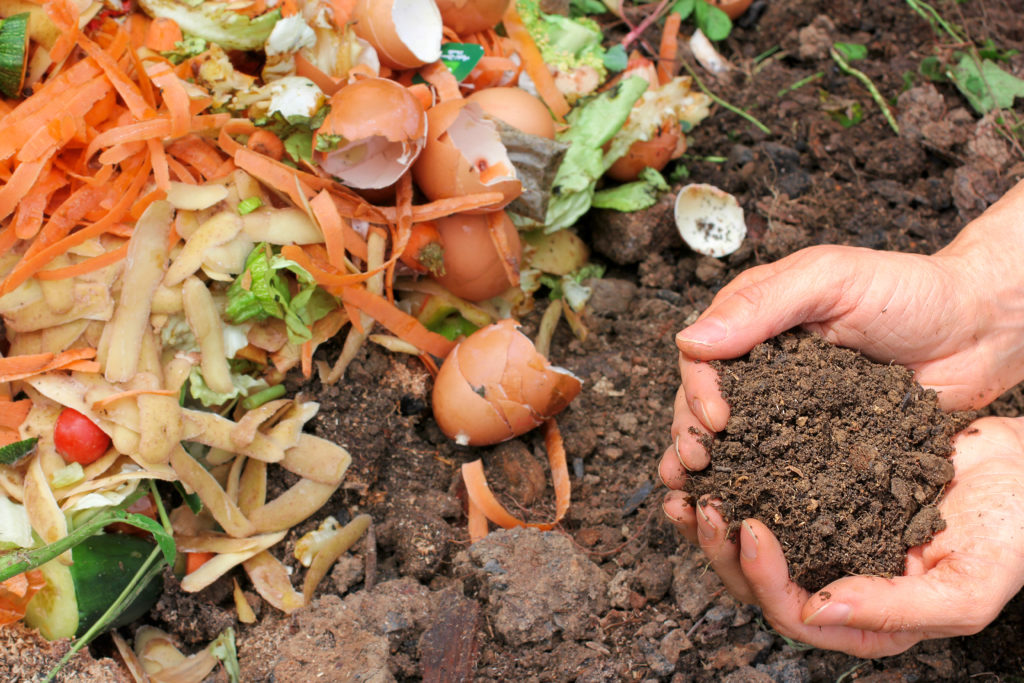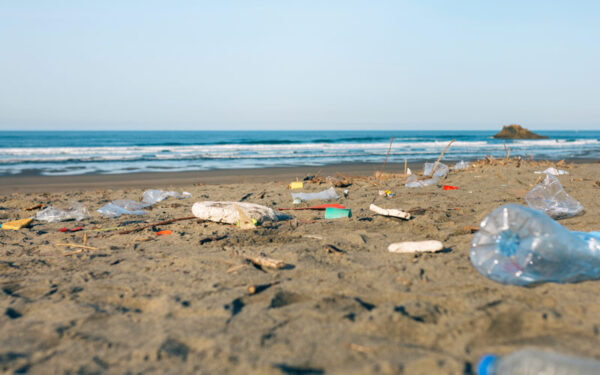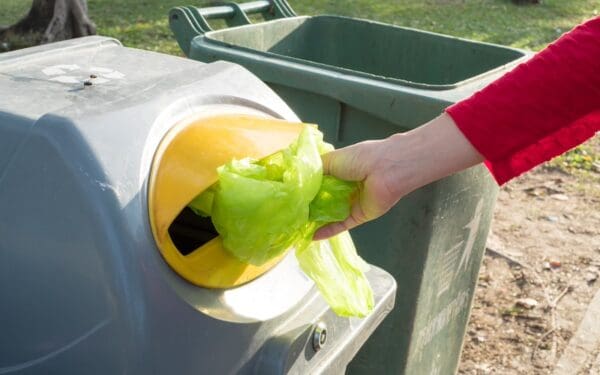
As a nation, we waste about 40 percent of the food we produce. Instead of throwing your extra food away, give composting a try. Photo: Shutterstock.
Over the last few years, the push to get food waste out of landfills and incinerators has become the new kale. Or cupcakes. Or bone broth. You get the picture. And rightfully so! As a nation, we waste a staggering amount of food every year: about 40 percent of what we produce. That’s more than 36 million tons of food and amounts to around $2,200 per family every year.
Besides squandering the time, water, labor, and resources it took to grow, transport, and sell all that wasted chow, food buried in landfills has big consequences for our environment. Food, like any carbon-based material, doesn’t decompose in a landfill because there’s little to no air in landfill cells. However, there is water, so that buried food – along with paper, cardboard, and textiles – produces methane, a potent greenhouse gas that contributes to climate change. According to the Environmental Protection Agency (EPA), landfills in the United States are the third-largest source of human-related methane emissions.
But each of us has the power to help stop this waste. First, we can all try to plan better and simply buy and waste less food. Even so, I can tell you from experience that the most frugal kitchen will leave food scraps. So rather than trashing that leftover food, compost it instead!
Composting 101: Getting Started
Composting is a great way to reuse your food scraps in ways that benefit the environment rather than harm it. And, with the rise of private composting services, even renters now have options for cutting their food waste. Here’s how you can get started today.
Backyard Composting – Create clean soil for your yard or garden by starting a compost pile or bin (in some communities, you can get one free thanks to state-level grants) in your backyard. You can’t put meat or fish in a compost bin or pile without attracting pests, but all of your fruit and vegetable waste can go there. Don’t be intimidated – while creating good soil from food quickly is an art, it also works pretty well if you just throw it in a pile and mix it up every once in a while. For more information, check out the Center for Eco Technology’s home composting guidelines.
- Green Cone – A Green Cone is a great solutions for people living in the suburbs. It isn’t cheap (about $200), but if you have a spot in your yard that gets sun, it’s an easy way to break down all of the food waste for a family of four (including fish, meat, and bones) – and it’s pest free. It doesn’t create any new compost for your garden, but it does allow the nutrients to go back into the soil.
- Sign up for a private compost service – Are you renting your home or don’t have a yard? If so, you can still compost. Private composting services are gaining traction across New England. For a small monthly fee, they’ll give you a compost bucket and collect it on a regular schedule. Simply Google “private compost service” and your state to find out if there’s one that serves your area. Once you’ve contacted them, be sure to ask what they accept, how they process the food waste (windrow composting is preferable, but anaerobic digestion is good, too), and if they mix it with sewer sludge (a.k.a. biosolids – yuck, unacceptable) or any other materials that might contain contaminants (also totally unacceptable). If you sign up for composting with one of these companies, let me know what you think.
- Sign up for a municipal service – If you live in a city or town that has started a curbside compost program, consider signing up. If you aren’t sure about your town, give the Department of Public Works a call and see what’s available. Remember – not all services are created equal. If it’s being processed with sewer sludge at the wastewater treatment plant, you haven’t solved your problem because the end product is now contaminated and should go to a landfill. Ask for composting that creates good, clean soil you and your neighbors can use.
- Speak up – If your city or town doesn’t yet have a composting system in place for your food waste, they could. Here’s an MIT report that talks about composting across the country and what elements spurred the adoption of municipal food scrap programs. Check it out and call your town. Ask why you don’t have a program and what it would take to start a pilot. A few committed volunteers are sometimes all it takes to make change.
Even More Upsides of Composting
If you’re still just thinking about composting and haven’t ordered your bin yet, then think about these other great benefits:
- When individuals or communities start composting, the trash doesn’t smell or attract pests. This means that trash pickup can be less frequent, which is cheaper for everyone.
- If you, your community, or your business pay for disposal by weight, you’ll save money, too. Organics are the heaviest waste stream, so taking them out of the garbage is lighter on your wallet.
- For many people, once they see how much food they’re throwing into the compost bin every week, they change their buying habits to cut back at the store. That’s more savings every month!
- Composting is great for the economy as a whole, since it creates more jobs than incinerating or landfilling our waste.
- And don’t forget about our climate – this is another way we can all be part of the solution by helping to cut potent methane emissions generated by landfilling.
Give Composting a Try Today
Your food waste isn’t going anywhere (except to the local landfill) until you take the plunge. And don’t worry if you’re not perfect. . . sometimes food gets wasted even if you’re doing your best. But every scrap of food we can keep out of a landfill is good for our wallets and our planet.
A version of this blog was originally published on May 9, 2018.




